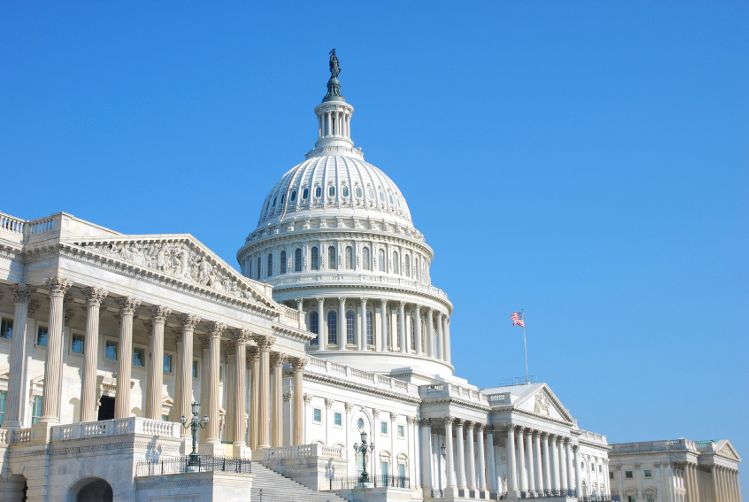Senate HELP Committee passes FDASLA without industry safeguards in mandatory product listing provision
The Senate Committee on Health, Education, Labor, and Pension (HELP) has passed the FDA Safety and Landmark Advancement Act (FDASLA) in a 13-9 vote.
Photo © iStockphoto.com/uschools

The Senate Committee on Health, Education, Labor, and Pension (HELP) has passed the FDA Safety and Landmark Advancement Act (FDASLA) in a 13-9 vote. The FDA user fee reauthorization package, introduced on May 27, 2022, includes a provision establishing a mandatory product listing requirement for dietary supplements. While the introduction of the Dietary Supplement Listing Act of 2022 the month prior sparked a debate about the potential benefits and perils of mandatory product listing legislation, the inclusion of a mandatory product listing provision in the FDASLA created a sense of urgency because FDA user fee reauthorization legislation is “must pass.” Notably, the House of Representative’s version of user fee reauthorization did not include a mandatory product listing provision.
While there’s been a divide on mandatory product listings, industry trade groups agree that the FDASLA mandatory product listing provision, as written, is not in the best interest of industry. Despite advocacy from industry to revise the mandatory product listing provision, or strike it entirely, none of the amendments passed by the committee addressed industry’s concerns. The legislation will now move forward to the full Senate, where it will be revised further and voted upon.
“We are disappointed that the significant economic, consumer, and security-related concerns that have been raised by NPA, other experts and thousands of American constituents, have to this point, appear to have fallen on deaf ears. We will redouble our efforts to continue educating members and staff about the deep negative impact of these provisions in hopes that we can get a fair hearing as the legislative process unfolds.” said Daniel Fabricant, Ph.D., president and CEO of NPA. The trade group has advocated for the removal of the dietary supplement provisions found in FDASLA, entirely. “We’re pleased the House in its wisdom did not include any of these unwise and dangerous provisions in its version of this legislation, and we are asking the Senate to reject these provisions on the floor when it comes for a full vote and the House to reject these Senate provisions in any final agreement between the chambers.”
The American Herbal Products Association (AHPA; Washington, D.C.), which also opposed to the mandatory product listing provision, urged the committee to consider a number of changes to the provision so that the legislation would be less burdensome on industry. These include simplifying the information required to be submitted by manufacturers, stronger intellectual property protections, making the product listing private to protect manufacturers from opportunistic plaintiff class action lawsuits, as well as assurances that FDA cannot reject a product listing submitted to the Agency.
The Council for Responsible Nutrition (CRN; Washington, D.C.), which has been advocating for a mandatory product listing requirement and endorsed the Dietary Supplement Listing Act of 2022, also demanded greater protections for dietary supplement manufacturers in FDASLA. In the wake of its passage, CRN has stated that it cannot support FDASLA provision without industry safeguards.
“As the industry’s leading proponent for a federal mandatory product listing program operated by FDA, CRN remains steadfast in our belief that such a program can provide consumers and the agency the transparency they want and need from the marketplace,” said Steve Mister, president and CEO of CRN, in a statement. “However, that transparency does not require confidential business information to go unprotected and should not necessitate trading away assurances that the authority to create the listing will not be misused. Responsible industry invests millions of dollars each year to researching, developing, and testing—ingredient innovation that powers the $54 billion dietary supplement market. Leaving out these essential business protections will needlessly stifle that innovation.
“Any legislation we support must safeguard consumers and responsible industry with these essential protections:
- Unwavering language that FDA may neither reject a submission nor create qualifications on submissions that would permit the agency to reject a listing
- Protections for confidential or proprietary business information from public release
- Limits on the information provided to FDA to those items that appear on the label
- No creation of broad, new prohibited acts, which could have unintended consequences for the industry”
The Consumer Healthcare Products Association (CHPA; Washington, D.C.) also criticized the legislation as burdensome, but also reiterated its position that the FDASLA provision is not comprehensive enough to modernize the regulatory framework of dietary supplements. “While CHPA remains highly supportive of an appropriate listing system for dietary supplements that will enhance consumer safety, we are strongly concerned that the dietary supplement provisions of this legislation are overly broad and will place unnecessary and costly burdens on the entire industry,” said Scott Melville, president and CEO of CHPA, in a prepared statement. “Moreover, the legislation falls short of the comprehensive reforms needed to appropriately and effectively modernize the regulatory framework for dietary supplements. CHPA remains committed to working with congressional leaders in both parties on an appropriate listing system that paves the way for increased visibility into the dietary supplement marketplace, while also providing consumers with the assurances they deserve regarding dietary supplements sold in the United States.”
For more on the positions of industry trade groups with regard to mandatory products listings and FDASLA, listen to Episodes 11 and 12 of the Nutritional Outlook Podcast.
HHS announces restructuring plans to consolidate divisions and downsize workforce
Published: March 27th 2025 | Updated: March 27th 2025According to the announcement, the restructuring will save taxpayers $1.8 billion per year by reducing the workforce by 10,000 full-time employees and consolidating the department’s 28 divisions into 15 new divisions.










